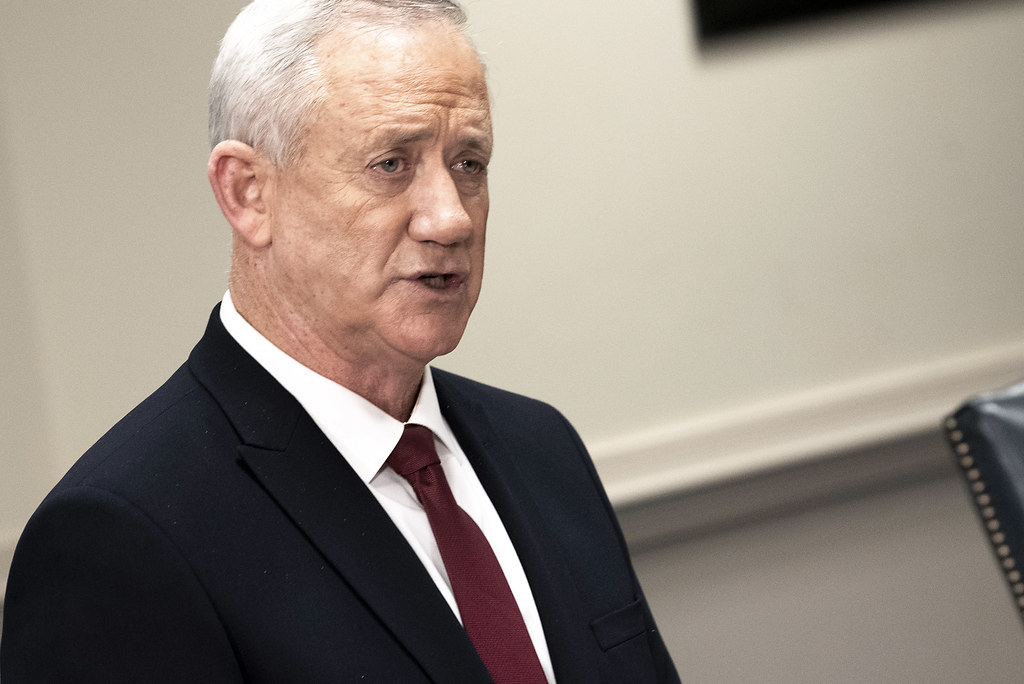Australia/Israel Review
New Year, new political uncertainty in Israel
Aug 29, 2023 | Amotz Asa-El

Rosh Hashana – the day on which Jews review the outgoing year and pray it will be followed by a better one – falls on September 16 this year. And this traditional day of soul-searching and reflection on where things are going could hardly be more timely, as the judicial crisis that has unsettled Israeli society moves into its tenth month.
The crisis came to a crescendo on July 24 when the Israeli legislature passed the third reading of an amendment to Israel’s Basic Law: The Judiciary, which forbade the Supreme Court using “reasonableness” as its standard in reviewing decisions taken by the government, the prime minister or any cabinet minister.
The amendment is only a small part of a much broader package, but it marks the first transformation into actual law of any portion of the Government’s deeply controversial judicial reform plans.
The crisis first erupted on Jan. 4, when Justice Minister Yariv Levin used a televised address to outline a blueprint for sweeping reforms that would redefine the Supreme Court’s mandate, alter the way its justices are chosen, and redesign the overall relationship between Israel’s judiciary and executive branch.
Levin’s announcement touched off mass demonstrations in Tel Aviv, Jerusalem, and other locations throughout the country. Hundreds of thousands protested, weekend after weekend, against what they described as a direct and deliberate threat to Israel’s democratic future.
Levin and his colleagues and supporters say the judiciary has, over the last few decades, gathered excessive and undemocratic powers, at times reversing legislation and annulling government decisions. The plan’s opponents say that, since Israel has no written constitution and only a unicameral parliament always controlled by the ruling coalition, the court is the only form of check on governmental overreach built into the Israeli system of governance. While many of these opponents agree that some judicial reforms are needed, they demand that any such legislation – which would become part of the “basic laws” that are Israel’s alternative to a constitution – should only be implemented with a broad public consensus.
In the streets, the protests gathered unpredicted momentum, energised by a backwind of public support from thousands of key figures in Israeli academia, the technology sector, business and culture, as well as a battery of former heads of the army, air force, navy, Mossad and Shin Bet internal security service.
The opposition to the reforms has also been bolstered from abroad. US President Joe Biden called on Prime Minister Binyamin Netanyahu to pass such legislation only by consensus, while French President Emmanuel Macron warned Netanyahu that, if his reforms passed, Paris will not be able to continue viewing Israel as the same democracy it has been since its establishment.
Financial markets responded to the situation by weakening the shekel, from 3.37 to the US dollar back in January to 3.8 in August. Israeli entrepreneurs have been warning that if the judicial reform legislation is passed, the foreign capital that has been fuelling Israel’s economically vital hi-tech industry might seek alternative shores.
Over the first half of this year, the protest movement managed to stall the legislation. Meanwhile, the political dynamics that drove that movement assumed a life of their own, thrusting new figures to the forefront while casting shadows of uncertainty on older ones.
One figure thrust to public prominence by the protest movement has been Shikma Bressler, 43, a Weizmann Institute physicist and former basketball star who, after being arrested in one of the demonstrations, became the face of the protest movement. Charismatic though she clearly is, she has no political ambitions, and Bressler is seen by the protesters as an emblem of the free, successful and worldly Israel that they value.

Benny Gantz, leader of the National Unity party, appears to have been the main political beneficiary of Israel’s divisive judicial reform controversy (Image: Wikimedia Commons)
On the political side, the winner so far from the ongoing mayhem has been former Defence Minister Benny Gantz, head of the centrist National Unity party.
Gantz heads only a 12-member faction in this Knesset, half the size of Opposition Leader Yair Lapid’s Yesh Atid (“There is a Future”) party. However, recent polls suggest National Unity could be gaining up to 30 seats, surpassing Lapid, whose party is predicted to shrink to 17 seats. National Unity is also outpolling Netanyahu’s Likud, which the polls suggest could decline from 32 to 27 seats if elections were held now.
Gantz is an ineloquent but straightforward pragmatist, and he apparently appeals to a critical mass of Likud voters who are either displeased with the entire judicial reform package or with the way it has been introduced and handled.
The original reform plan was indeed sweeping, not only according to its opponents, but also according to its mastermind, Justice Minister Levin.
Had it been up to Levin, the governing Coalition would have by now had the power to appoint the Supreme Court’s new justices and pick the Court President, and to override, by a simple parliamentary majority, any judicial decision to invalidate a law. In addition, legal guidance from the attorney-general and other government legal advisors would have been redefined as non-binding – and these civil servants would also have been transformed into political appointees that ministers could fire or hire at will.
None of this happened. The Government has made do, for now, with the single amendment it passed in July – a relatively marginal part of the original blueprint.
The momentum to pass the package as a whole was lost in March, when Netanyahu fired Defence Minister Yoav Gallant for demanding the legislation be suspended. Gallant had argued the reform push and the harsh reaction it generated were harming military readiness and cohesion, as an undisclosed number of reservist pilots suspended their voluntary, weekly training in protest against the reforms.
Gallant’s dismissal sent hundreds of thousands into the streets, convincing Netanyahu to withdraw the dismissal, suspend the legislation, and take advantage of President Isaac Herzog’s offer to host talks between the Government and the Opposition over an agreed set of judicial reforms that would be passed with a broad consensus.
The talks proceeded until June, when it turned out that the governing Coalition was refusing to allow a newly selected Judicial Appointments Committee to convene. If the committee had convened – and made decisions to appoint new Supreme Court justices – this would have effectively buried most of the reforms for the rest of the current legislative term, since altering the process for selecting such justices was one of its most central and ambitious planks.
As a result of the refusal to convene the Committee, the Opposition concluded that Netanyahu was using the presidential talks simply to temporarily divert public anger and play for time, before ultimately resuming the reform legislation. The Opposition therefore suspended participation in the talks until the Selection Committee was convened. The Government responded to this move by unilaterally passing the “reasonableness” amendment in July. The Opposition boycotted the vote, and the amendment passed by a vote of 64:0.
Netanyahu, meanwhile, in a blitz of TV interviews – all of them to foreign and not Israeli channels – claimed he would ultimately seek judicial legislation by consensus, but stressed that he still intended to change the structure of the Judicial Selection Committee later this year.
The Committee’s current formula balances between jurists on the one hand and politicians from both sides of aisle on the other, with both jurists and government effectively having a veto over any Supreme Court pick – thus compelling them to reach some consensus between them.
Netanyahu’s promise to continue to seek changes to the Committee only further fuelled the protesters. The only change in his attitude, critics argued, is tactical – to now seek to legislate the judicial reform package piecemeal, rather than in one fell swoop.
Meanwhile, more reservist officers responded by announcing the suspension of their voluntary service, including two very senior commanders from the Navy. Unnamed military sources quoted by Israeli TV reportedly warned that the army’s battle readiness was being harmed, as an unspecified, but high, number of reservists failed to show up for voluntary training sessions.
Now, with the Knesset Autumn session scheduled to open on Oct. 15, pundits are divided over whether Netanyahu is now seeking a way to shelve the reforms, or still plans to seek to push them through despite the risk of shattering the national consensus.
Even before then, another major drama is brewing, with the Supreme Court scheduled to sit in mid-September to rule on multiple appeals to overturn the “reasonableness” amendment, or at least order the Knesset to amend it.
Meanwhile, on top of the ongoing pressure he faces from the protest movement, Netanyahu is also facing growing pressures from within his coalition that are no less intense.
At the heart of Netanyahu’s current coalition predicament is the so-called Conscription Law, a bill that would permanently and categorically exempt ultra-Orthodox students in religious academies from military service. (At the moment, de facto arrangements mean relatively few ultra-Orthodox males serve in the IDF, but the Supreme Court has repeatedly struck down laws that would codify such exemptions for the ultra-Orthodox as discriminatory).
For Israel’s two ultra-Orthodox parties, which represent 15% of the 120-seat Knesset and nearly 30% of the coalition’s 64 seats, this is their most important political demand. For most other Israeli Jews, including many Likud voters, the proposed law is disagreeable at best, anathema at worst.
Now, faced with the grassroots anger sparked by the judicial reform proposals, some of Likud’s 32 lawmakers are reportedly fearful that it would be politically suicidal for them to pass conscription legislation that would pour yet more oil on the political bonfire they are already facing.
Messages in this spirit have reportedly been transmitted to the ultra-Orthodox parties, but their response has been anything but flexible. From their point of view, they now have a rare parliamentary opportunity to gain the permanent conscription exemption they have been seeking for decades. Ultra-Orthodox leaders are therefore threatening that if the Conscription Law isn’t passed, they will suspend their support for the judicial reforms – while some are reportedly saying they would prefer to abandon the reform package altogether.
Just where all this will lead is anyone’s guess. One certainty, however, is that when Israelis from both camps flock to synagogues for Rosh Hashana services, they will likely recall the past year with great perplexity and look ahead with equal hope – praying that the Jewish year 5784 will be happier than 5783.
Tags: Israel, judicial reforms






